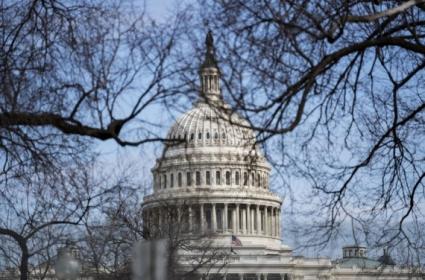Recurring Shutdowns: A Lesson Unheeded by the U.S.
In a disheartening display of déjà vu, the United States finds itself grappling with yet another government shutdown. As the nation once again grapples with the consequences of political impasse, it becomes increasingly evident that history is repeating itself. Despite the lessons learned from previous shutdowns, it appears that the U.S. has failed to truly internalize the importance of avoiding such detrimental stalemates. This article delves into the recurring nature of shutdowns and explores the underlying factors that contribute to this seemingly unbreakable cycle.
The Vicious Cycle:
The United States has witnessed a series of government shutdowns over the years, each leaving a trail of economic and social repercussions in its wake. From the infamous 1995-1996 shutdown under President Bill Clinton to the more recent 2018-2019 shutdown under President Donald Trump, the nation has experienced the detrimental effects of political gridlock time and time again. Despite the temporary nature of these shutdowns, their impact on the economy, government services, and public trust is far-reaching.
Learning from the Past:
One would assume that the U.S. government, having endured the consequences of shutdowns in the past, would be motivated to prevent their recurrence. However, it appears that the lessons learned from history have not been effectively applied. The underlying causes of shutdowns, such as partisan politics, ideological differences, and budgetary disputes, continue to plague the nation’s governance. The failure to address these root issues perpetuates the cycle of shutdowns, leaving the American people to bear the brunt of the consequences.
Economic Fallout:
The economic ramifications of government shutdowns cannot be understated. With federal agencies forced to furlough employees and suspend services, the ripple effects are felt across various sectors. Small businesses suffer from reduced consumer spending, federal contractors face financial uncertainty, and the overall economy takes a hit. The repeated occurrence of shutdowns only exacerbates these negative impacts, eroding investor confidence and hindering economic growth.
Public Trust Eroded:
Government shutdowns erode public trust in the ability of elected officials to effectively govern. As citizens witness their representatives engaging in political brinkmanship, the faith in the democratic process wanes. The recurring nature of shutdowns further deepens this disillusionment, leaving the American people questioning the efficacy of their elected leaders. Restoring public trust becomes an uphill battle, as the scars of repeated shutdowns continue to linger.
Breaking the Cycle:
Breaking free from the cycle of shutdowns requires a concerted effort from all branches of government. Bipartisanship, compromise, and a commitment to the greater good must prevail over partisan interests. Additionally, implementing structural reforms that address the underlying causes of shutdowns, such as budgetary processes and campaign finance reform, can help prevent future stalemates. Learning from the mistakes of the past and actively working towards a more functional government is crucial to breaking this destructive cycle.
As the United States grapples with yet another government shutdown, it becomes evident that history is repeating itself. The failure to learn from past mistakes and address the root causes of shutdowns perpetuates a vicious cycle that hampers economic growth, erodes public trust, and undermines the democratic process. It is high time for the nation’s leaders to rise above partisan politics and prioritize the well-being of the American people. Only through genuine efforts to break free from this recurring nightmare can the U.S. hope to forge a more stable and prosperous future.

